
THERE AREN'T MANY places as idyllic as a tropical coral cay on the Great Barrier Reef (GBR). These hard-to-reach places - natural mounds of white coral sand and rubble that often sprout lush green vegetation fertilised by seabirds are among the planet's most picturesque places. But the mood is sombre among the researchers who greet me and photographer Craig Parry as we arrive in early May 2024 on the RV Linckia II at The University of Sydney (USyd) research station on One Tree Island (OTI), a 4ha cay off the Queensland coast, about 100km east of Gladstone. Among them is Dr Steph Gardner, a marine microbial ecologist from The University of Sydney who, like so many reef researchers, has been in love with the GBR - its colour, movement and abundance of life - since childhood.
Steph has been here since late March following up on research she began in 2023, looking at bacterial diversity in the sand around corals. Although it's not yet clear what role these life forms might play, they could be critical to coral-reef health, just like healthy gut biomes are known to be important to human wellbeing.
When Steph first arrived here this season, she couldn't wait to show her colleagues Raphael Burkart-Radtke and Ana OlmosPin the beauty in the famously untouched waters around OTI.
As one of only two "orange" research zones closed to the public within the massive 344,000sq.km marine park that protects much of the GBR, the OTI environment is as close to pristine as you can get. It's off-limits to tourists, only low-impact research is allowed and there's virtually no run-off of any sort from operations here.
This story is from the July - August 2024 edition of Australian Geographic Magazine.
Start your 7-day Magzter GOLD free trial to access thousands of curated premium stories, and 9,000+ magazines and newspapers.
Already a subscriber ? Sign In
This story is from the July - August 2024 edition of Australian Geographic Magazine.
Start your 7-day Magzter GOLD free trial to access thousands of curated premium stories, and 9,000+ magazines and newspapers.
Already a subscriber? Sign In
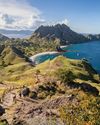
SULAWESI SENSATIONS
There are worlds within worlds and marvels untold waiting to be experienced on Indonesia's remote islands.
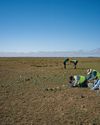
SEARCHING FOR AUSSIE DINOSAURS
Our understanding of where to find ancient life in Australia has been turned on its head by a new appreciation of the country's geology. Now the world is looking to our vast outback as the latest hotspot to locate fossils.
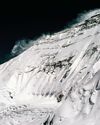
THE HARDEST NIGHT
The first Australian ascent of Mt Everest in 1984 is one of the great feats of mountaineering. Climbed by a small team semi-alpine style, with no bottled oxygen, via the Great (Norton) Couloir, it remains unrepeated 40 years later.
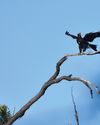
WEDGE-TAILED WONDER
The chance discovery of an eagle nest leads to an extended vigil observing normally hidden behaviours of one of nature's supreme winged marvels.
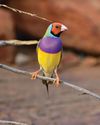
BURDENED BY BEAUTY
Northern Australia's Gouldian finch survives in huge numbers in cages around the world, but its wild population continues to struggle.
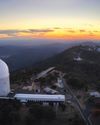
A TELESCOPE FOR A GOLDEN AGE
After a stellar 50 years as one of the country's major scientific assets, the AAT continues to play a major role in keeping Australian astronomy on the world stage.
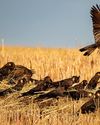
COCKY WHISPERING AT COOMALLO CREEK
This patch of remnant bush on the edge of the West Australian wheatbelt is a place loved by one of Australia's rarest bird species and the man who has studied the site for more than 50 years.

A PIONEERING PAIR
Louisa Atkinson and her mother, Charlotte, were among Australia's earliest authors, and pioneers in women's rights.
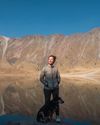
THE LONGEST WALK
Lucy Barnard is walking from Argentina to Alaska -the length of the Americas - on an extraordinary journey of endurance and adventure.
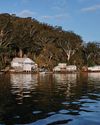
SECLUDED, BUT NOT ALONE
In an era of heightened social isolation, where many of us lead lonely lives, Dangar Island offers the chance to be part of a supportive, connected community.